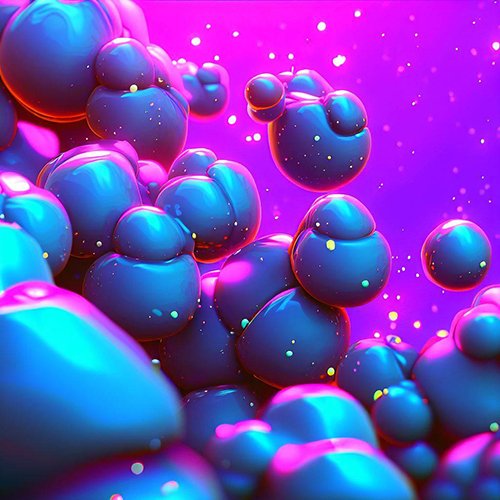The Potential of Matinas BioPharma’s Lipid Nano-Crystal Technology in Drug Development
Matinas BioPharma, a clinical-stage biopharmaceutical company, has been working on an innovative drug delivery system called Lipid Nano-Crystal (LNC) technology. This revolutionary platform has the potential to improve the safety and efficacy of many highly-toxic and intravenous (IV) administered drugs. By encapsulating these drugs within lipid nano-crystals, the LNC technology could transform the way we deliver medications and enhance patient outcomes. In this article, we'll explore ten highly-toxic and IV-administered drugs that could benefit from Matinas' LNC technology.
1. Chemotherapy Agents: Reducing Side Effects and Increasing Efficacy
Chemotherapy, a common treatment for cancer, typically involves the use of highly-toxic drugs administered through IV. Some examples include doxorubicin, cisplatin, and paclitaxel. The LNC technology could potentially reduce the harmful side effects associated with these agents and enhance their therapeutic efficacy. By encapsulating chemotherapy drugs in lipid nanoparticles, LNC technology may help target cancer cells more effectively and reduce damage to healthy tissues.
2. Vancomycin: Enhanced Delivery for Resistant Infections
Vancomycin is an antibiotic widely used to treat severe bacterial infections, particularly those caused by methicillin-resistant Staphylococcus aureus (MRSA). However, its IV administration and potential side effects, such as kidney damage and hearing loss, can be problematic. LNC technology could improve the delivery and safety of vancomycin, making it a more viable option for treating resistant infections.
3. Antiviral Agents: Better Treatment for Viral Infections
Antiviral drugs, such as acyclovir and ganciclovir, are often administered intravenously to treat severe viral infections. However, their systemic distribution can lead to unwanted side effects. Matinas' LNC technology could encapsulate these drugs in lipid nanoparticles, improving their delivery to targeted sites and potentially reducing the risk of side effects.
4. Immunotherapy Drugs: Unlocking the Power of the Immune System
Immunotherapy has emerged as a promising approach to cancer treatment, with drugs like pembrolizumab and nivolumab leading the way. These medications, typically administered through IV, can cause severe side effects due to their potent nature. By incorporating LNC technology, these drugs could be delivered more effectively, reducing the risk of side effects and enhancing the overall treatment experience for patients.
5. Anesthetic Agents: Safer and More Efficient Pain Management
Anesthetic drugs, such as propofol and ketamine, are administered intravenously to induce and maintain anesthesia during surgery. While these drugs are effective, they can also cause adverse reactions in some patients. LNC technology could potentially make the delivery of these anesthetic agents safer and more efficient, leading to improved pain management during surgical procedures.
6. Monoclonal Antibodies: Targeted Therapy with Fewer Side Effects
Monoclonal antibodies, like trastuzumab and rituximab, are used to treat various autoimmune diseases and cancers. These powerful drugs are often administered intravenously and can cause significant side effects. By utilizing Matinas' LNC technology, monoclonal antibodies could be encapsulated in lipid nanoparticles, potentially improving their targeted delivery and reducing side effects.
7. Anticoagulants: Enhanced Control of Blood Clotting
Anticoagulants, such as heparin and warfarin, are critical for preventing blood clot formation in patients at risk. These drugs, typically administered through IV, can cause bleeding complications and require careful monitoring. With the aid of LNC technology, the delivery of anticoagulants could be optimized, potentially resulting in safer and more effective blood clot prevention.
8. Anti-Hypertensive Drugs: Improved Management of High Blood Pressure
Some patients with severe hypertension may require intravenous administration of anti-hypertensive drugs, such as nitroglycerin and sodium nitroprusside, for rapid blood pressure control. However, these drugs can cause unwanted side effects. By leveraging LNC technology, the delivery and safety of these medications could be improved, leading to better blood pressure management in patients with severe hypertension.
9. Immunosuppressive Drugs: Minimizing Risks for Transplant Patients
Immunosuppressive drugs, such as cyclosporine and tacrolimus, are essential for preventing organ rejection in transplant patients. These medications are often administered through IV and can have severe side effects. LNC technology could potentially enhance the delivery and safety of immunosuppressive drugs, reducing the risk of complications and improving outcomes for transplant patients.
10. Radiopharmaceuticals: Advancements in Diagnostic and Therapeutic Imaging
Radiopharmaceuticals, such as iodine-131 and lutetium-177, play a vital role in both diagnostic and therapeutic nuclear medicine. These agents are typically administered intravenously and can cause radiation-related side effects. By incorporating LNC technology, radiopharmaceuticals could be delivered more efficiently and safely, leading to improved diagnostic and therapeutic imaging outcomes.
The Future of Drug Delivery with Matinas' LNC Technology
The potential applications of Matinas BioPharma's LNC technology are vast, with the capability to improve the delivery and safety of many highly-toxic and intravenous drugs. From cancer treatments to managing severe infections, the LNC platform could revolutionize the way we administer medications and enhance patient outcomes. As research continues and the LNC technology is further developed, we may see a new era of safer, more effective drug therapies on the horizon.
Thanks for reading and don’t forget to follow us on Twitter.











